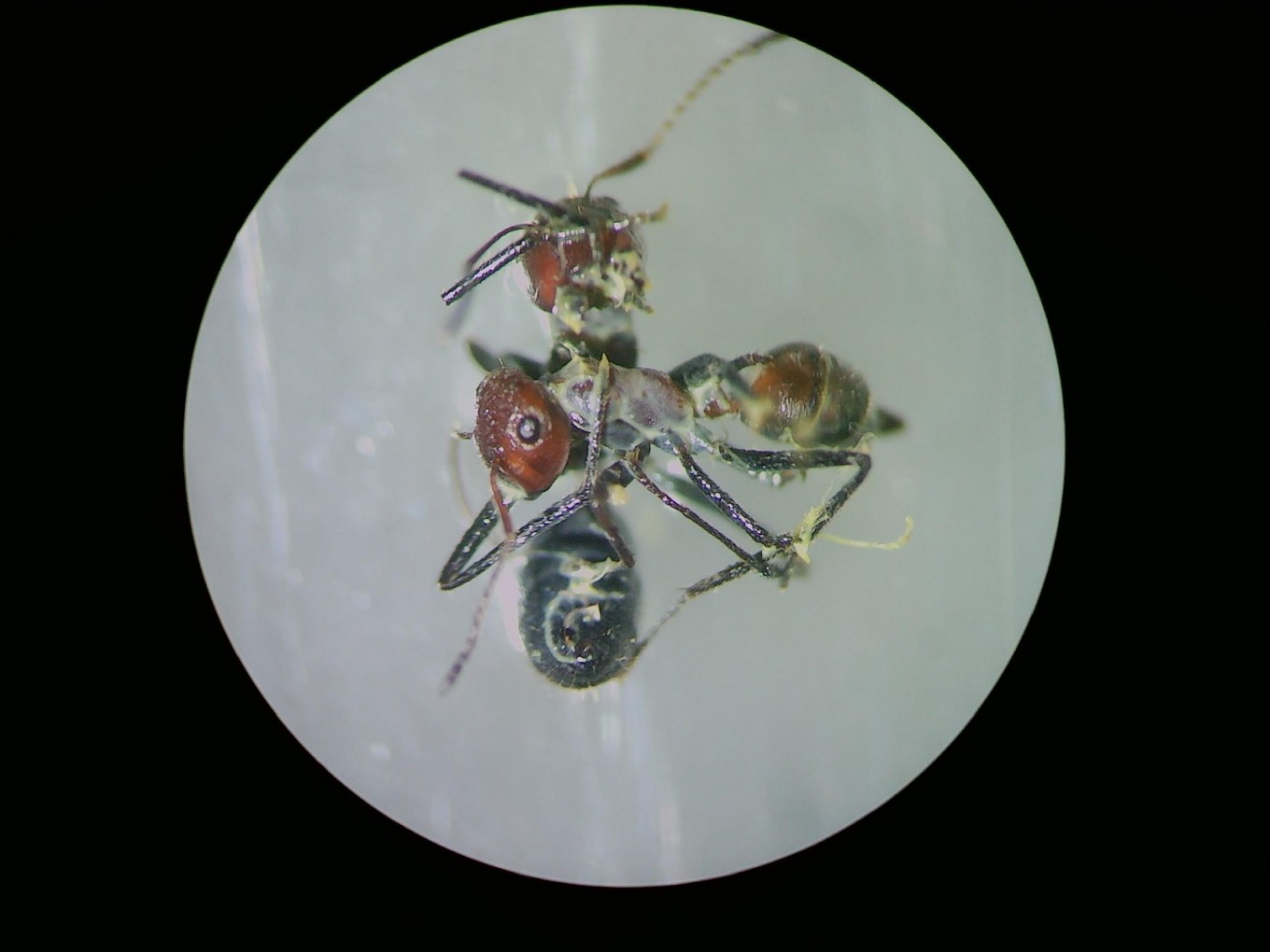Ants that 'explode' to fight foes discovered on Borneo
Change text size
Gift Premium Articles
to Anyone
 This undated handout photo taken in Brunei and released by Alexey Kopchinskiy from Vienna Technical University on April 20, 2018 shows an ant (bottom), with the scientific name Colobopsis explodens, 'exploding' on another ant from the same species but from a different colony. (Vienna Technical University/AFP/Alexey Kopchinskiy)
This undated handout photo taken in Brunei and released by Alexey Kopchinskiy from Vienna Technical University on April 20, 2018 shows an ant (bottom), with the scientific name Colobopsis explodens, 'exploding' on another ant from the same species but from a different colony. (Vienna Technical University/AFP/Alexey Kopchinskiy)
A
species of ant that "explodes" and gives off a toxic, sticky liquid to fight off foes and keep its colony safe has been discovered in the jungles of Borneo island, scientists said Friday.
The creatures, which have the scientific name Colobopsis explodens, were found by a team of researchers in the tiny state of Brunei, which inhabits a sliver of land in the north of the biodiverse island.
When threatened by other insects, worker ants can rupture the wall of their body, which leads to their death and the release of a yellow toxin from their glands that either kills or holds off enemies, according to the study published in journal ZooKeys.
The scientists from Austria, Thailand and Brunei said the existence of a broad grouping of "exploding" ants was already known, but they had managed to identify several specific species in the course of their research.
The Colobopsis explodens was picked out as the model species of the group as it is particularly prone to self-sacrifice, they said.
Read also: Remarkable abilities of ants could inspire progress in robotics: Experts
Alice Laciny, a scientist from Vienna Natural History Museum who was involved in the study, said the ant "explodes" by contracting "its body until enough pressure is built up to tear the body wall, then the secretion exits with a small squirt or pop".
She told AFP that such a phenomenon was "very rare in nature" and only a handful of "social" insects -- such as ants and bees -- were known to sacrifice themselves in such a fashion.
"The colony is like a superorganism and the individual animal like a cell in a body with its special role to play," she said.
The new ant species, which lives in trees, will be an important point of reference for future study, said the researchers.
The research project was led by Irina Druzhinina from Vienna Technical University.









